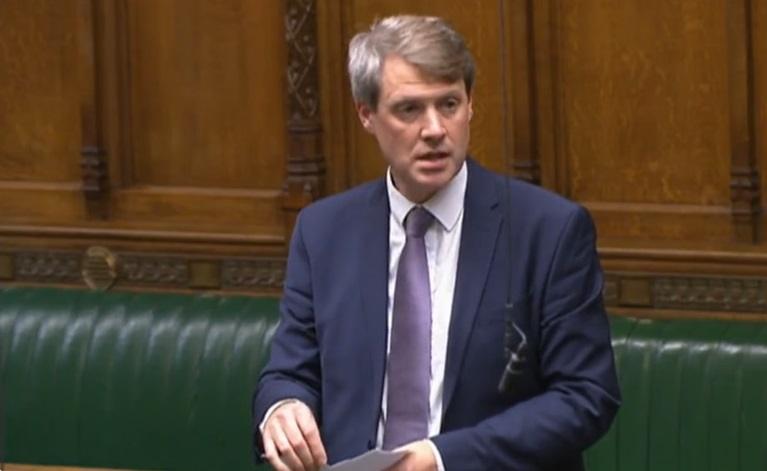
Former UK Conservative Energy Minister Resigns over Government Plan for New North Sea Oil & Gas Licenses
Former Conservative minister Chris Skidmore announced that he will resign his party whip and step down as a member of Parliament as soon as possible, in protest of the government’s plan to enable more licensing for oil and gas production in the North Sea.
In his resignation letter, Skidmore, who served as Energy Minister in 2019 when the UK signed its commitment to achieve net zero emissions by 2050 into law, said that it is a “tragedy that the UK has been allowed to lose its climate leadership,” adding that “the future will judge harshly those that” vote for the government’s Offshore Petroleum Licensing Bill.
When introducing the bill to Parliament in November, the government noted that the UK will continue to require oil and gas for its energy needs throughout the coming decades of the energy transition, and that the proposed legislation required licensing rounds to meet stringent emissions tests, adding that domestic gas production has only around a quarter of the carbon footprint of imported LNG.
In his letter, however, Skidmore, while acknowledging “a role for oil and gas in the transition to net zero,” notes that the IEA and UNCCC have said that reaching net zero by 2050 and limiting temperature rise to 1.5C require ending new oil and gas production beyond what has already been committed, and argues that “there is no case to be made for increasing fossil fuel production at a time when investment should be made elsewhere,” in areas such as renewable energy. Skidmore added that following the initiation of “the global transition away from fossil fuels” set in motion at the COP28 climate conference, the future obsolescence of fossil fuels will cause new oil and gas licenses to create stranded assets, instead of supporting communities “to transition their skills and expertise to renewable and clean energy.”
The resignation marks the latest in a series of challenges for the Sunak government over its climate policies. In September, the government faced criticism from business and investors over its plan to delay or cancel several climate related initiatives, such as pushing back a ban on the sale of new petrol and diesel car sales by 5 years to 2035, easing rules to transition away from oil and gas boilers and towards heat pumps, and removing home energy efficiency requirements. In June 2023, environment minister Zac Goldsmith resigned from his post citing government “apathy” towards climate action.
Skidmore said that the new bill will “send a global signal that the UK is rowing back even further from its climate commitments,” adding that the UK “cannot expect other countries to phase out their fossil fuels when at the same time we continue to issue new licenses or to open new oil fields.”
Skidmore added:
“At a time when we should be committing to more climate action, we simply do not have any more time to waste promoting the future production of fossil fuels that it the ultimate cause of the environmental crisis we are facing.”